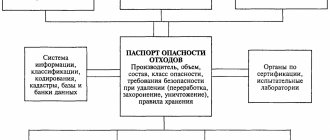Types of calculation and payment
The first method - by source of payment - refers to the case where taxes are transferred from wages. In this case, the tax payment is withheld by the employer from the employee’s earnings.
In this case, the payers will be tax agents: an individual entrepreneur or a legal entity.
The employee does not submit a declaration and does not transfer the required amount to the budget; all this falls on the shoulders of the employer.
An employee can submit a declaration to the inspectorate if he wants to receive a tax deduction.
The second method is declarative . It is used, for example, by individual entrepreneurs, notaries who are engaged in private practice, and other categories of persons, as well as by individuals for certain types of income received. The list of such income is contained in Art. 228 Tax Code (for example, rental income, from the sale of an apartment, etc.).
If the individual entrepreneur has employees
The following fee and tax payment schedules are relevant for all individual entrepreneurs - even those who do not have employees. And those who have them additionally need to submit the following payments and reports:
| Deadline | Payment type | Peculiarities |
| Every 15th of the month | Pass SZV-M for all employees | The report indicates the TIN and SNILS, it is submitted to the Pension Fund |
| Pay contributions to the Pension Fund, FFOMS, Social Insurance Fund for each employee | Pension Fund - 22%. FSS - 2.9%. Compulsory medical insurance - 5.1%. | |
| Every 16th of the month | Pay personal income tax on employee income | 13% of salary |
Individual entrepreneurs with employees submit the following types of reporting for all types of taxation:
- report on form 6-NDFL - quarterly;
- report on insurance premiums - quarterly;
- report on the average number of employees - once a year;
- report on employees who do not pay personal income tax - once a year;
- confirmation of the main activity of employees - once a year;
- employee experience report - once a year.
Responsibilities of a tax agent
Agents are required to provide information to the territorial department of the tax inspectorate:
- relating to the income of individuals for the expired tax period (calendar year);
- personal income tax amounts (accrued, withheld, transferred to the state budget).
All responsibility for timely payment and correct calculations lies with the tax agent.
Payment deadlines
When must personal income tax be paid? The tax agent must transfer the accrued and already withheld tax no later than the day:
- when you actually received cash from the bank to pay your salary;
- when salary is transferred from the employer’s account to other accounts.
Otherwise, agents are required to transfer money no later than the following day:
- which follows the day of the actual transfer of wages (if this occurs in monetary terms);
- following the day of deduction of the tax amount (if this occurs in kind).
Personal income tax: “individual” features
An individual entrepreneur pays personal income tax on the income he receives from business activities. But having employees, the individual entrepreneur also acts as a tax agent. What rights and responsibilities arise in this case?
Are amounts received from state budget funds to promote self-employment of unemployed citizens and stimulate the creation of additional jobs by such citizens who have opened their own businesses subject to personal income tax?
- Yes, they are taxable. But Federal Law No. 41-FZ dated 04/05/10 supplemented Article 223 of the Tax Code with provisions according to which, from January 1, 2009, a special accounting procedure is provided for the purposes of determining the tax base for personal income tax of the specified amounts of funds.
According to paragraph 3 of Art. 223 of the Tax Code of the Russian Federation, these payments are taken into account as income during three tax periods - with simultaneous reflection as expenses (within the limits of actually incurred expenses of each tax period), provided for by the conditions for receiving these payment amounts.
In case of violation of the conditions for receiving payments, such amounts are reflected in full as part of the income of the tax period in which the violation was committed. If at the end of the third tax period the amount of payments received exceeds the amount of expenses, the remaining unaccounted amounts are reflected in full as part of the income of that tax period.
An individual entrepreneur using the simplified tax system with the object of taxation “income” received a grant for business development. Is he required to submit an income statement in Form No. 3-NDFL regarding the grant received?
— A grant received by an individual entrepreneur for business development refers to income received as part of the relevant business activity. In the event that a simplified taxation system is applied to income received from business activities, such income is exempt from personal income tax on the basis of clause 24 of Art. 217 Tax Code of the Russian Federation. Such clarifications are given in the Letter of the Ministry of Finance of Russia dated 05/07/10 No. 03-04-05/3-255.
An entrepreneur applying the general tax regime plans to sell a car and a boat used for business activities. Vehicle ownership is less than three years. In what amount can a property deduction be provided for personal income tax: up to 250 thousand rubles for each vehicle or for both within the total deduction amount - 250 thousand rubles?
— The procedure for providing property tax deductions when calculating personal income tax is regulated by Art. 220 Tax Code of the Russian Federation. In paragraphs Clause 1 of this article provides that deductions are not provided for income received from the sale of property used in business activities. This is due to the fact that an entrepreneur under the general taxation regime depreciates his fixed assets.
In other cases, when selling in one tax period one or more items of movable property that were owned by the taxpayer for less than three years, the taxpayer has the right to take advantage of a property tax deduction in an amount not exceeding 250 thousand rubles in total for the tax period, or take into account past expenses for the purchase of these objects.
The individual entrepreneur provides services to the organization. Receives goods as payment. Doesn’t double personal income tax taxation arise in this situation – when the goods are posted and then when they are sold?
— In accordance with paragraph 1 of Art. 210 of the Tax Code of the Russian Federation, when determining the tax base for personal income tax, all income of the taxpayer that he received both in cash and in kind is taken into account. Thus, income received by a taxpayer in kind in the form of goods as payment for services, as well as income from the sale of said goods, are subject to personal income tax on a general basis. Double taxation does not arise in this case, since the types of income subject to taxation are different from each other.
Does an entrepreneur need to pay personal income tax if he receives equipment under a free use agreement?
- According to Art. 689 of the Civil Code of the Russian Federation, under an agreement for gratuitous use (loan agreement), one party (the lender) undertakes to transfer or transfers an item for gratuitous temporary use to the other party (the borrower), and the latter undertakes to return the same item in the condition in which it received it, taking into account normal wear and tear or in contract condition.
In this case, the rules on the lease agreement provided for by the Civil Code apply to the agreement for gratuitous use. By receiving property under a gratuitous use agreement, the borrower receives the right to use this property free of charge.
As for tax legislation, Ch. 23 of the Tax Code of the Russian Federation does not contain rules allowing the gratuitous use of property to be classified as the income of an individual subject to personal income tax. Therefore, the entrepreneur does not need to pay personal income tax.
The car used by the entrepreneur was involved in an accident. The insurance company transferred funds to the entrepreneur's account. Are these funds the income of the entrepreneur for the purpose of calculating personal income tax when applying the general taxation regime?
— The object of personal income tax taxation arises only if the amount transferred by the insurance organization exceeds the expenses necessary for repairs or the cost of repairs. The specifics of determining the tax base when calculating personal income tax under insurance contracts are established by Art. 213 Tax Code of the Russian Federation. It should be remembered that after repairing a car, the entrepreneur must have documents confirming the expenses incurred: an agreement (copy of the agreement) on the performance of the relevant work (on the provision of services); document (act) confirming acceptance of work performed (services provided); payment documents confirming the fact of payment for work (services).
If an individual entrepreneur pays employees wages in kind, then who is responsible for paying personal income tax on such income? Do I need to submit information to the tax authority about this employee income?
— According to paragraph 1 of Art. 211 of the Tax Code of the Russian Federation, when a taxpayer receives income from organizations and individual entrepreneurs in kind in the form of goods (work, services), other property, the tax base is determined as the cost of these goods (work, services), other property, calculated on the basis of their prices determined in the manner , similar to that provided for in Art. 40 Tax Code of the Russian Federation.
That is, an entrepreneur, in relation to income paid to his employees, including in kind, is recognized as a tax agent, which imposes on him the obligation to calculate, withhold and transfer personal income tax to the budget.
And in accordance with Art. 230 of the Tax Code of the Russian Federation, a tax agent is charged with the obligation to keep records of income received from him by individuals during the tax period, and the obligation to submit the relevant information to the tax authority at the place of his registration.
An individual entrepreneur is registered with different tax authorities: at the place of activity using the taxation system in the form of UTII and at the place of residence. Where should personal income tax withheld from the income of employees be transferred?
— The amount of tax calculated and withheld by the tax agent is paid at the place of registration of the tax agent with the tax authority (clause 7 of Article 226 of the Tax Code of the Russian Federation). In the case where an individual entrepreneur is registered with different tax authorities, personal income tax on income paid to employees engaged in activities in respect of which a single tax on imputed income is paid should be transferred to the budget at the place of registration of the individual entrepreneur in connection with the implementation of such activities. This tax authority should also provide information on the income of individuals and the amounts of taxes accrued and withheld during the tax period (clause 2 of Article 230 of the Tax Code of the Russian Federation).
Can an individual entrepreneur using the taxation system in the form of UTII receive a property tax deduction for personal income tax in relation to the income for which he pays UTII?
— Chapter 26.3 of the Tax Code of the Russian Federation does not provide for the provision of property tax deductions. According to paragraph 24 of Art. 217 of the Tax Code of the Russian Federation, income received by individual entrepreneurs from carrying out those types of activities for which they are recognized as UTII payers is not subject to personal income tax. Consequently, property deductions for personal income tax cannot be applied to income for which an individual entrepreneur pays UTII. Moreover, if the UTII payer receives any other income subject to personal income tax at a rate of 13%, he has the right to reduce the amount of such income by property tax deductions, including in the amount of expenses actually incurred by him, for example, on the purchase of housing.
The entrepreneur received a deposit as payment under the real estate purchase and sale agreement. The final payment must be made after the property is transferred to the buyer. In this case, the deposit is counted towards payment under the contract. At what point should the deposit amount be included in the personal income tax base: upon receipt or after full payment by the buyer of the property?
— Taxation will depend on the nature of the use of this object. If the object was used in business activities, then the amount of the deposit should be included in the personal income tax tax base upon receipt. Taking into account the norms of Art. Art. 210, 223 of the Tax Code of the Russian Federation, when determining the tax base for personal income tax in relation to income received by individual entrepreneurs in the current tax period, all amounts of funds received by the taxpayer in the specified tax period are subject to accounting as income.
If the object was not used in business activities, the approach to taxation is different. Before the state registration of the transfer of rights to real estate, the transfer by one individual (buyer) to another (seller) of funds (partially or in full) to pay for the cost of the acquired real estate is considered as receiving an advance, which in the event of termination of the purchase and sale transaction before state registration returnable.
Consequently, the date of receipt of income by the seller of real estate should be determined taking into account the date of state registration of the transfer of ownership to the buyers of this property. This follows from the provisions of Art. Art. 131 and 551 of the Civil Code of the Russian Federation.
Elmira Bagautdinova
leading expert - tax consultant, member of the Chamber of Tax Consultants of Russia
Advance and salary
Salaries are paid on the last day of the month. Payment is made within a time frame depending on the employment contract or labor regulations of a particular organization. Payment for the first part of the month is called an advance.
Thus, salaries are transferred twice a month. What then is the deadline for paying personal income tax for individual entrepreneurs and legal entities-employers?
The legislator resolves this issue very simply: an advance is not recognized as income and therefore is not subject to income tax. That is, the salary is divided into parts when issued, and the tax on it is paid only once - at the final settlement.
Filing a declaration by individuals
According to the Tax Code, the personal income tax return must be submitted to the territorial department of the inspectorate no later than April 30 of the year following the reporting year.
The period may be different in the following cases:
- if the payments specified in Art. 228, before the end of the calendar year. Here, an individual is obliged to submit a declaration within 5 days from the date of termination of payments (receipt of income), and not wait until April 30 of the next year;
- if a foreign individual ceased activities and left Russia, then the declaration must be submitted no later than 1 month before departure.
Methods of paying personal income tax by individual entrepreneurs
Individual entrepreneurs on OSNO must necessarily pay personal income tax on the income received.
Step-by-step instructions for calculating and paying personal income tax by entrepreneurs on OSNO were developed by ConsultantPlus experts. Get a free trial access to K+ and watch the action guide.
Personal income tax must be paid in two ways:
- Advance payments, which from 2021 are calculated in a new way: from actually received (and not planned, as before) income and are transferred within the following terms:
- until April 25 - for the 1st quarter (until 04/26/2021 - taking into account the transfer from the weekend).
- before July 25 - six months (until July 26, 2021);
- until October 25 - for the 3rd quarter.
- After submitting the declaration to the Federal Tax Service, you must either pay additional tax or return the overpaid funds from the budget (offset for the future).
If the advance payment was transferred with a delay, penalties will be charged for the debt that arose for this reason (Article 75 of the Tax Code of the Russian Federation).
Payment to the budget
The deadline for paying taxes by individuals does not coincide with the date of filing the declaration. Personal income tax is paid no later than July 15 of the year following the reporting period.
Taxpayers who received income for which the agents did not withhold personal income tax must pay it in equal shares in two payments: the first - no later than 30 days after the inspector delivers the notice of payment, the second - no later than 30 days after the first payment deadline.
The amount that is additionally accrued under the declaration must be paid no later than 15 days (calendar) after submitting the report.
Calculations and payments when filing a declaration must be made by individuals independently, without the participation of agents.








